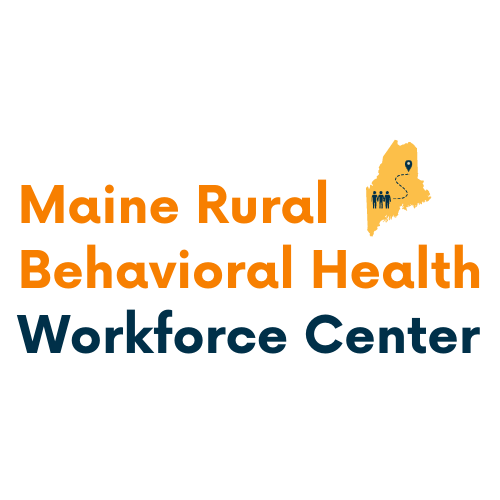Training Strengthens Care for People with Substance Use Disorder
January 17, 2024

Dr. Paul Vinsel.
Part I: Patient-centered Treatment of Substance Use Disorder
Substance use disorder (SUD) touches every community within the U.S., and Maine is no different with a total of 504 deaths related to overdoses in 2020, a 33% increase from 2019. Of those 504 deaths, 83% were caused by opioids, and the year-over-year increase was largely driven by nonpharmaceutical drugs, primarily fentanyl, according to the Maine Drug Death Report.
Because of SUD’s consistent, increasing harm in rural communities, there is also an increased need for helping those in recovery. MCD Global Health’s Rural Behavioral Workforce Center (RBHWC) offers numerous training opportunities and resources to support Maine’s capacity to meet the growing need.

The RBHWC offers training opportunities for those with lived experience of SUD, providers, prescribers, and other health workers. Two participants of the most recent ECHO® Training on Medications for Opioid Use Disorder (MOUD) shared their experiences from the training and how it impacted their work in helping those in recovery.
The first of these stories is from Dr. Paul Vinsel, a physician who works in addiction medicine at Tri-County Mental Health Services in the small coastal town of West Bath, Maine, about 40 miles north of Portland,
His work involves traveling to provide addiction services to patients living in Lewiston, Farmington, Rumford, Bridgton, and Oxford.
“Every community is a little different; they have their own flavor,” he described.
Prior to his current role, he worked in emergency medicine for 36 years in the U.S. Army, New York, Vermont, and Maine and remembers in the ‘90s feeling pressure to prescribe opioids to patients who had both severe and moderate, acute and chronic pain.
“I remember speaking to a colleague of mine in the emergency department during that time, and we both just looked at each other and said, ‘If this keeps up, we’re going to have a whole generation addicted to opioids,” Paul said. “And we were right.”
Feeling “helpless to stop it,” he began to see a vast increase of opioid-related overdoses in his communities.
“I realized then that when people died of addiction, they just vanish,” he said. “It's as if they just fell off the face of the Earth, and that was really painful to me.”
That’s when Paul made the decision to change direction toward treating opioid use disorder (OUD). He went to numerous conferences, conferred with other physicians who treated people with addiction, and began his path to addiction medicine.
As part of his continuing education, Paul participated in the MOUD ECHO® Training offered by MCD’s RBHWC.
The free MOUD ECHO® training involves one-hour, virtual meetings that occur twice a month for six months. It follows the Project ECHO® model where subject-matter experts from different areas of behavioral health, public health and health care come together to share knowledge and discuss their experiences in the field with one another. This particular training focuses on risk reduction and safe management of medications used for the chronic condition.
Paul referred to it as “excellent education” and that it helped him deal with some very difficult and complicated cases.
“Presenting them as a case presentation at the ECHO® allowed me to work through it by hearing other recommendations,” he described. “We had people, we had physicians, we had counselors, we had people with lived experience all in the same group sharing knowledge and experiences.”
To Paul, what it boils down to is decreasing stigma of SUD and OUD with health care staff.
“I really feel that the answer to getting people into treatment is not me. It's not getting them to see an addiction specialist. It's getting them into their primary care provider,” he said. “Anyone can prescribe these medications, and the only barrier to primary care physicians prescribing this for their patients is stigma.”
In addition, a vital reminder that Paul received from the training was to focus on patient-centered care.
“This is tremendously rewarding work,” Paul said. “I've had so much fun watching my patients in recovery, watching their lives improve [as they receive treatment]. They can get jobs, they can get back with their families for the first time, they get a regular paycheck for the first time in a long time.
“As you're doing treatment with patients, you often get caught up in the details of the appointment and sometimes lose the big picture. You're more focused on getting the dosage right and other things, but patient-centered care is most important because listening to the patient and asking them, ‘What should we do from here?’ And they usually know. Going through the cases in the ECHO® training reminded me to make sure I was doing that, and it was very helpful.”
Paul plans to attend the 2024 MOUD ECHO® Training that runs from January 12 through June 28. Anyone can join the training at any time when it is offered.